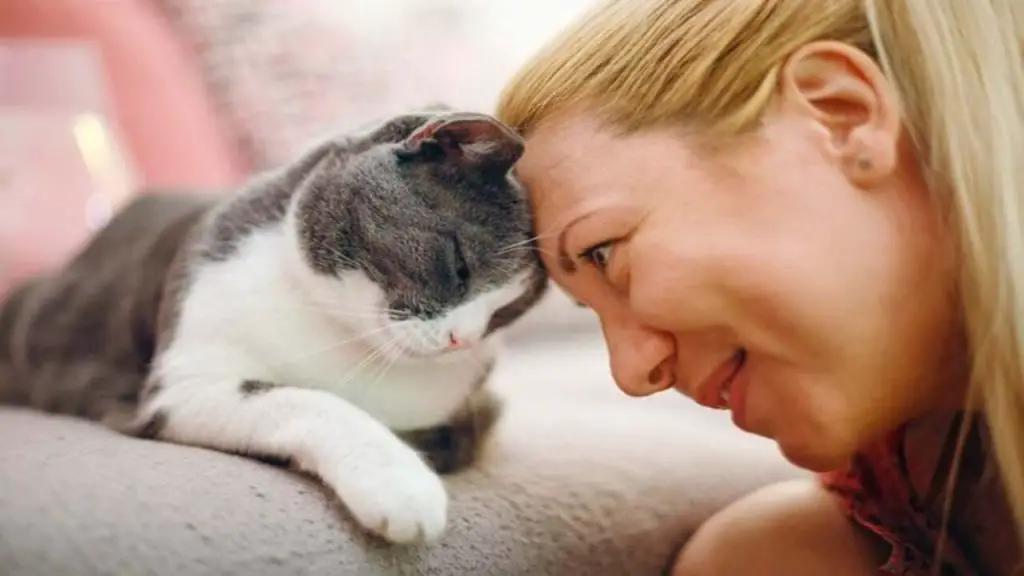Cats are beloved pets all around the world, but have you ever wondered how long they actually live? It’s natural to want to know how much time you’ll have with your furry companion, and what factors can affect their lifespan.
Cats have been domesticated for thousands of years and have become an integral part of many households. However, their lifespans can vary greatly depending on a variety of factors, such as breed, genetics, and environment.
Knowing how long cats typically live can help you make informed decisions about their care and ensure they live a long, healthy life.
In this article, we’ll explore the average lifespan of cats, as well as the factors that can influence their longevity. Whether you’re a lifelong cat owner or considering adopting a new feline friend, understanding their lifespan is an important part of being a responsible pet owner.
Furthermore, if you’re interested in learning about the lifespan of dogs, I encourage you to visit this link, where you can discover valuable insights on the topic.
How long do cats live?
Cats are known for their long lives and can live anywhere from 12 to 20 years on average. However, some cats have been known to live well into their 20s. The lifespan of a cat can be influenced by several factors, such as genetics, diet, and environment.
Indoor cats tend to live longer than outdoor cats due to the reduced risk of accidents and exposure to diseases. Regular visits to the vet and a healthy lifestyle can also extend a cat’s lifespan.
It is important to note that some cat breeds, such as Siamese and Maine Coon, are known to have longer lifespans than others.
The general lifespan of cats
Cats are known to be one of the most beloved pets around the world. They are known for their playful nature, independence, and affectionate behavior towards their owners.
The general lifespan of cats varies depending on several factors such as breed, genetics, lifestyle, and nutrition. On average, cats can live up to 15 years, but some can live up to 20 years or more with proper care and attention. As cats age, they require more attention and care to maintain their health and well-being.
It is important for cat owners to provide their feline companions with a healthy diet, regular exercise, and regular visits to the veterinarian to ensure they live long and healthy life.
10 Different breeds of cats and their lifespan
1. Siamese Cat
Siamese cats are one of the oldest breeds of cats and have a lifespan of 15 to 20 years.
2. Persian Cat
Persian cats are known for their long, luxurious coats and have a lifespan of 12 to 17 years.
3. Maine Coon Cat
Maine Coon cats are one of the largest domesticated cat breeds and have a lifespan of 12 to 15 years.
4. Bengal Cat
Bengal cats are known for their striking coat patterns and have a lifespan of 10 to 16 years.
5. Sphynx Cat
Sphynx cats are hairless and have a lifespan of 8 to 14 years.
6. Scottish Fold Cat
Scottish Fold cats have unique ears that fold forward and have a lifespan of 12 to 14 years.
7. Ragdoll Cat
Ragdoll cats are known for their gentle temperament and have a lifespan of 12 to 17 years.
8. British Shorthair Cat
British Shorthair cats are a popular breed in the UK and have a lifespan of 12 to 17 years.
9. Russian Blue Cat
Russian Blue cats have a distinct blue-grey coat and have a lifespan of 10 to 16 years.
10. American Shorthair Cat
American Shorthair cats are a common breed in the US and have a lifespan of 15 to 20 years.
7 Factors that Affect a Cat’s Lifespan

1. Genetics
Genetics plays a significant role in a cat’s lifespan. Some breeds are prone to certain health issues that can affect their lifespan, while others may have a genetic predisposition to live longer.
2. Diet
A cat’s diet is essential for their overall health and can impact their lifespan. Feeding your cat a balanced and nutritious diet that meets its specific nutritional needs can help prevent health issues and prolong its life.
3. Exercise
Just like humans, cats need regular exercise to stay healthy. Lack of exercise can lead to obesity, which can increase the risk of health issues such as diabetes, heart disease, and joint problems.
4. Environment
The environment that a cat lives in can also affect their lifespan. Indoor cats tend to live longer than outdoor cats due to the increased risk of injury, disease, and predation that outdoor cats face.
5. Veterinary care
Regular veterinary care is crucial for a cat’s health and can help prevent or diagnose health issues early on. Routine check-ups, vaccinations, and preventative care can all contribute to a longer lifespan for your cat.
6. Stress
Stress can have a negative impact on a cat’s health and lifespan. Cats that experience chronic stress may be more susceptible to diseases and may have a shorter lifespan.
7. Spaying or neutering
Spaying or neutering your cat can have a positive impact on their lifespan. These procedures can help prevent certain health issues, such as reproductive cancers, and can also reduce the risk of behavioral problems that may put them in danger.
Common health issues that may shorten a cat’s lifespan
As much as we love our feline friends, it’s important to be aware of the common health issues that can affect their lifespan. One of the most common health issues that can shorten a cat’s lifespan is obesity.
Overweight cats are at risk of developing diabetes, heart disease, and joint problems, all of which can significantly impact their quality of life and shorten their lifespan.
Other health issues that can affect a cat’s lifespan include dental problems, kidney disease, hyperthyroidism, and cancer.
As responsible pet owners, it’s important to stay vigilant and take preventative measures to keep our cats healthy and happy for as long as possible.
Ways to extend your cat’s Lifespan
As a cat owner, it is natural to want your feline friend to live a long and healthy life. There are several ways to extend your cat’s lifespan, including providing a well-balanced diet, regular exercise, and routine veterinary care.
Feeding your cat a high-quality diet that meets its nutritional needs can help prevent obesity, diabetes, and other health issues. Regular exercise can keep your cat fit and help prevent joint problems.
Additionally, taking your cat to the veterinarian for regular check-ups can catch any health issues early and ensure they receive proper treatment.
By taking these steps, you can help your cat live a long and happy life.
Conclusion
In conclusion, the lifespan of a cat can vary depending on various factors such as breed, genetics, lifestyle, and overall health. On average, cats can live up to 15 years, but some can live well into their 20s.
It’s important to provide your feline friend with proper nutrition, regular veterinary care, and a safe environment to help them live long and healthy life. Keep in mind that while cats may not live as long as humans, the love and companionship they bring into our lives make every moment with them precious.


